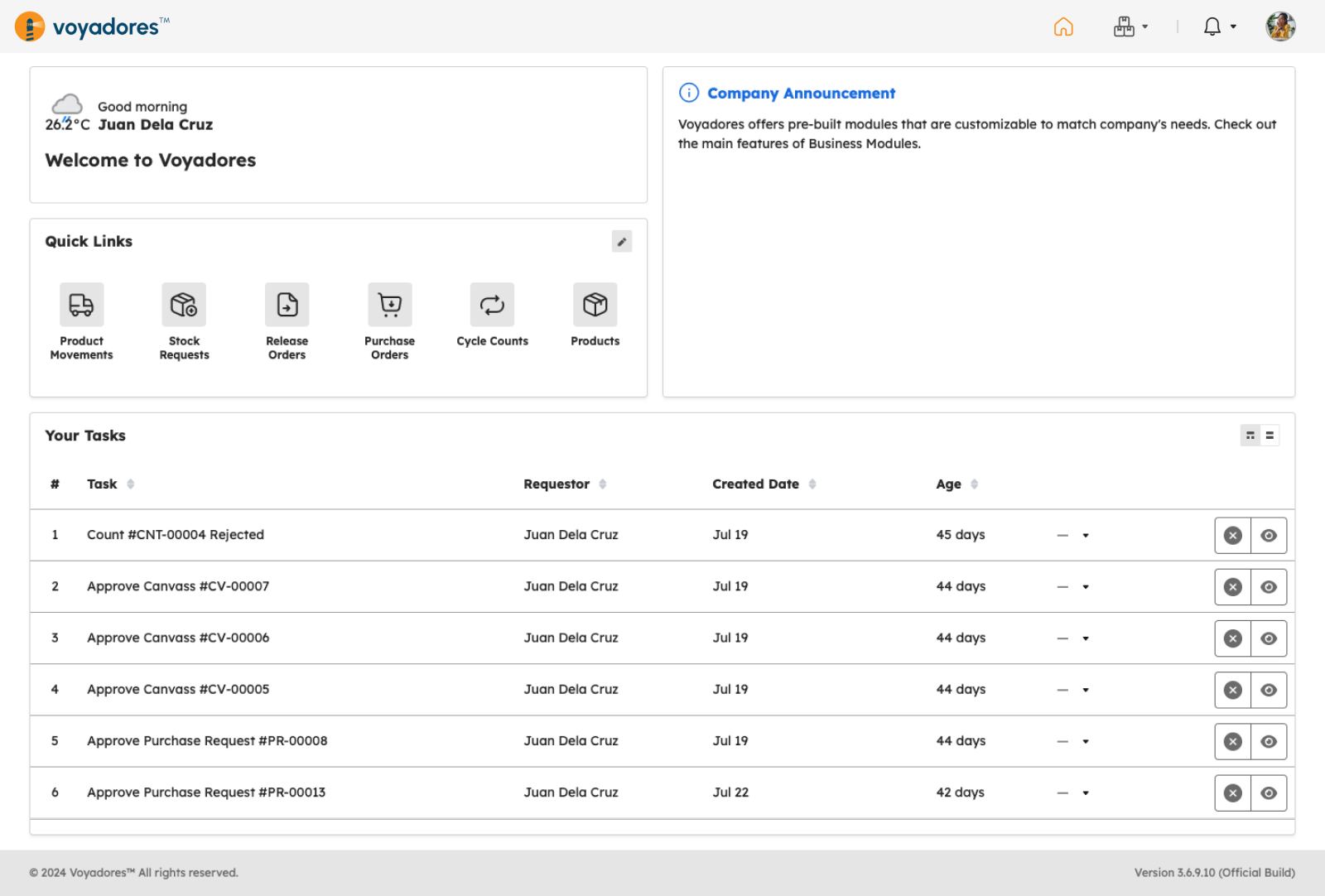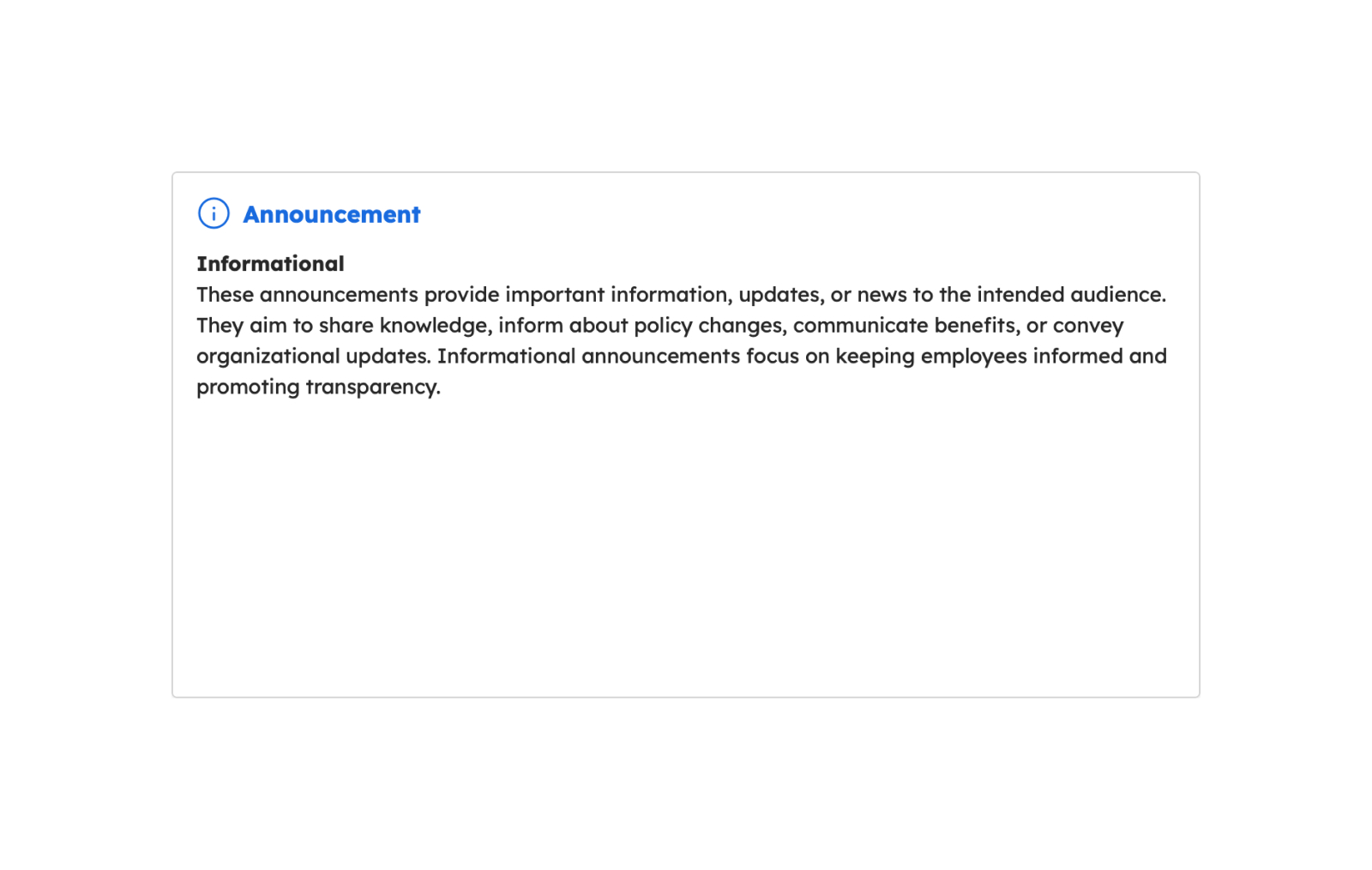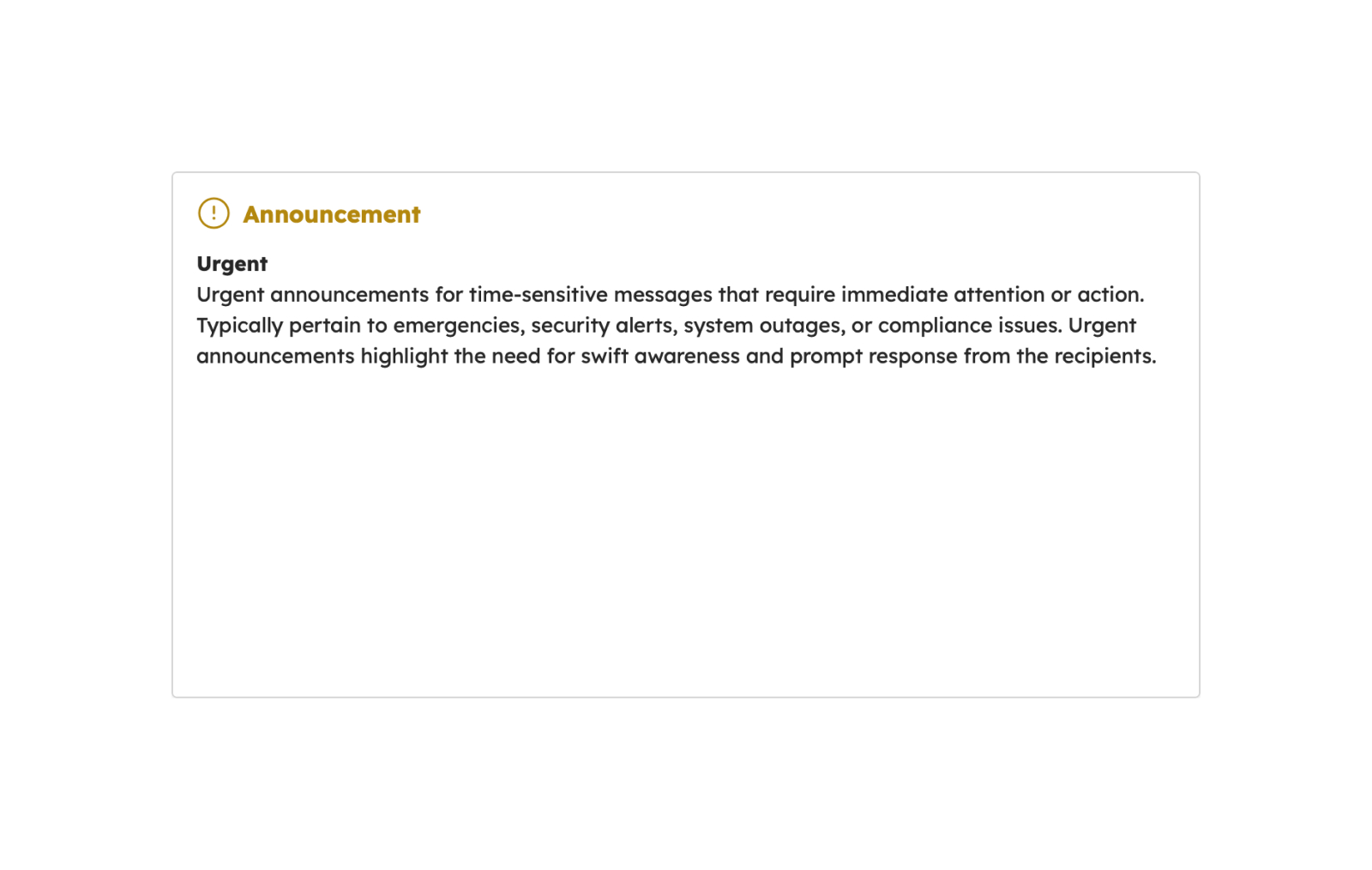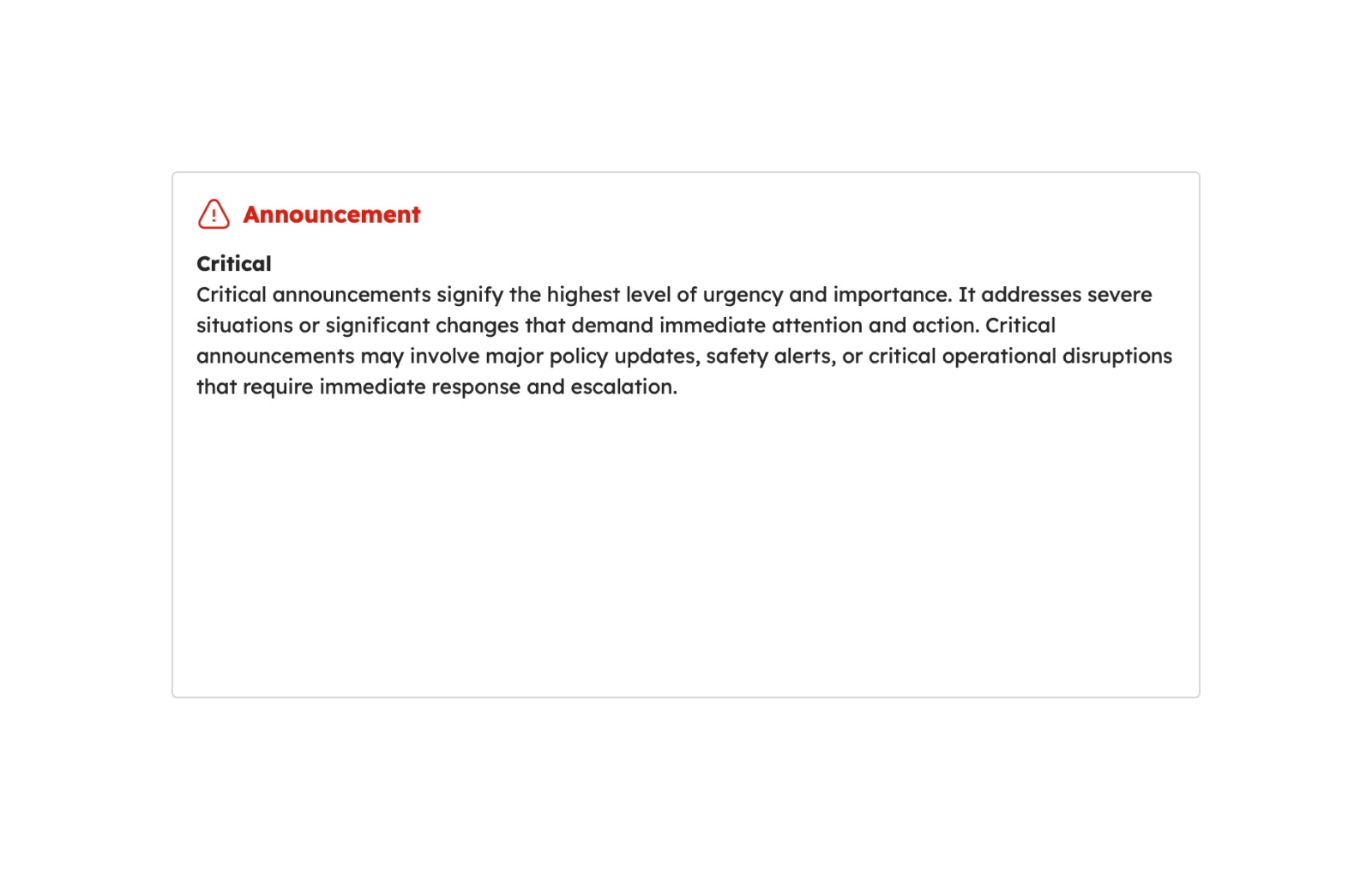Dashboard
Who can use this feature
Anyone can access the dashboard
The Home page is the main landing page of the software application, where you can find icons for Account, Manage, Inventory, Notifications, and Home (menu accessibility for the Administrator role). These icons serve as quick links to their respective modules or pages.
Additionally, the Home page includes the 'Your Tasks' dashboard, which displays a list of pending tasks. Below is a sample landing page for the Administrator role. It also features a 'Quick Links' section, where you can add up to 6 pages as quick links.

Your Tasks
The Your Tasks in dashboard helps users manage pending tasks by providing a comprehensive view of all tasks that are yet to be completed.
The dashboard displays key information such as the following:
- Task. The document column displays the document that is associated with the task.
- Requestor. The requestor information column displays the name of the user who requested the task.
- Created Date. The date of creation column displays the date upon creation of task.
- Age. The age column displays the time duration between the current date and the date upon creation of the task. This helps users prioritize pending tasks by identifying the ones that have been pending for a longer duration.
- Status. The status column displays the status of the task, whether it is urgent, important, normal, not set or low. This helps users track the progress of pending tasks and identify any delays in completing them.
- Action. To view the details of a specific task, users can click on the eye button within the table. This will bring up a task detail page where users can view additional information about the task or click the x icon to dismiss task.
Announcement
Announcement section provides a comprehensive understanding of the feature to revolutionize internal communication within the organization. It is accessible in the Manage menu. Announcements serve as a powerful tool to keep employees informed, engaged, and connected to important HR-related updates, events, and policies.
Announcement provides three distinct types, each represented by a different color. Please refer to the sample below for more information:
-
Informationals. These announcements provide important information, updates, or news to the intended audience. They aim to share knowledge, inform about policy changes, communicate benefits, or convey organizational updates. Informational announcements focus on keeping employees informed and promoting transparency.

-
Urgents. Urgent announcements for time-sensitive messages that require immediate attention or action. Typically pertain to emergencies, security alerts, system outages, or compliance issues. Urgent announcements highlight the need for swift awareness and prompt response from the recipients.

-
Criticals. Critical announcements signify the highest level of urgency and importance. It addresses severe situations or significant changes that demand immediate attention and action. Critical announcements may involve major policy updates, safety alerts, or critical operational disruptions that require immediate response and escalation.
